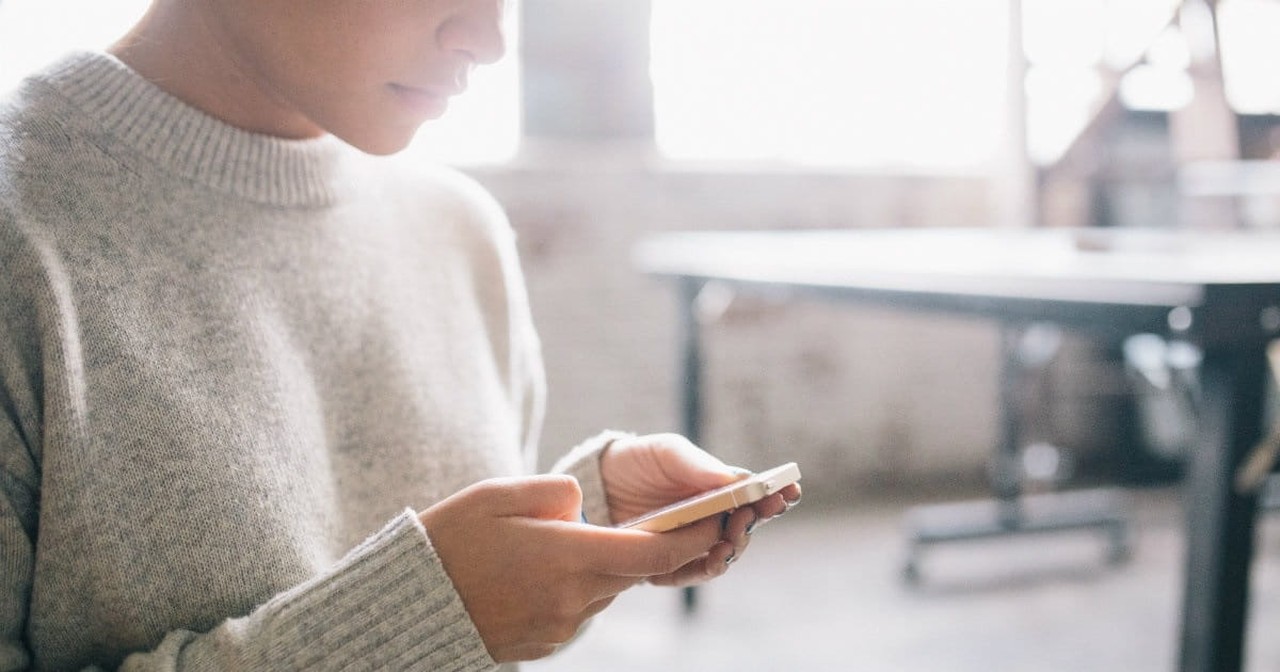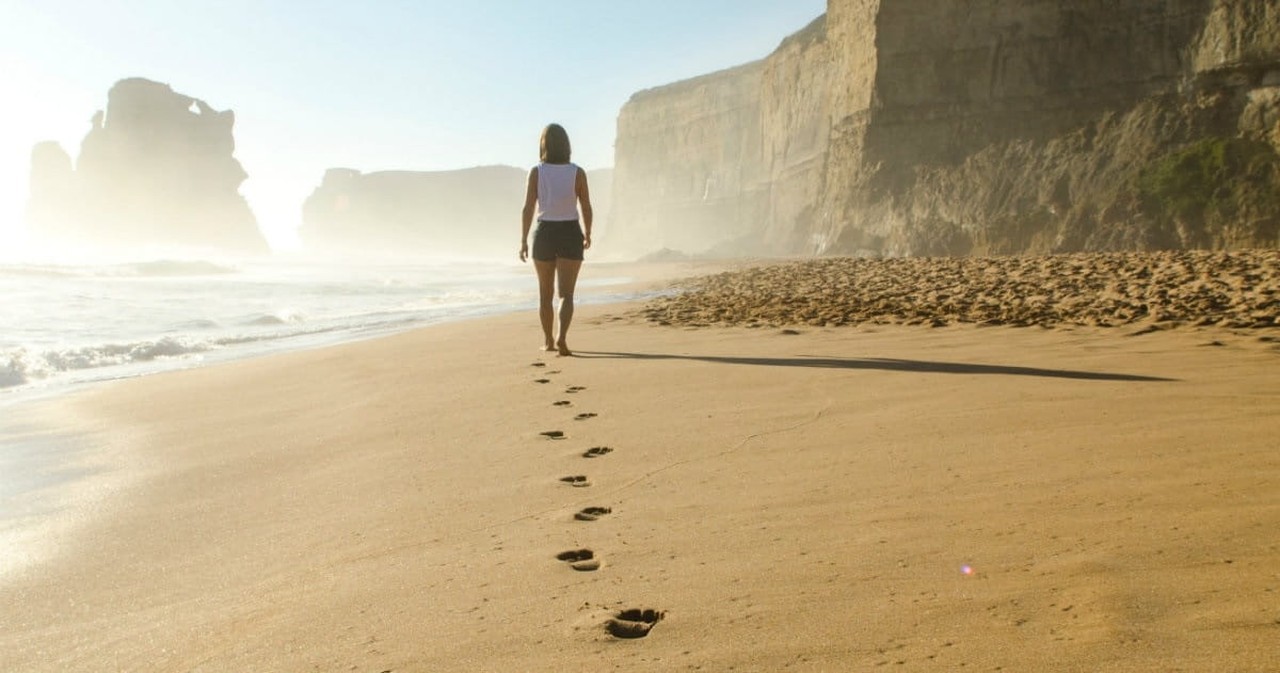
I’d given myself a deadline. I wanted to remove all social apps before I left for vacation with my husband. I wanted the kind of vacation I'd had as a child: carefree, screen-free and without wondering if my holiday photos would be “liked.” I didn’t realize deleting all the social media apps from my phone would make me so anxious. I thought I’d feel relieved. Instead, I found myself joining in a last-minute twitter chat.
My thumbs were still keying tweets with only a few people in front of me at the boarding gate. It was now or never. I closed Twitter. Held my finger on the app icon, it wiggled, and I pressed the “x”. I had deleted Facebook, LinkedIn, Instagram and Pinterest the previous night. It was holiday time!
Here are a few things I’ve learned from becoming a digital minimalist:
1. I felt more laid back after deleting all the social apps of my phone.

1. I felt more laid back after deleting all the social apps of my phone.
SLIDE 1 OF 6
I locked my phone in the hotel safe for 95% of our vacation. When I took it out, I used it as a camera. I messaged photos to my family and a few close friends. I posted nothing to social media sites. I felt relaxed and present. And I loved it.
Before we left for our vacation, Xylon and I took our dogs for a walk on the beach near our home. We watched a family arrive. The two youngest children ran towards the sea screaming, “We’re at the beach!” It was beautiful. They were so absorbed in the moment. Behind them came two teenage siblings. They stood on the sand dune taking selfies.
I’d thought about deleting my social media apps for weeks but watching the kids on the beach convinced me. I didn’t want to live my life constructing beautiful updates but never feel the ocean wash over my toes.
Photo Credit: ©Unsplash.com
2. I realized just how much social media I consumed and that I needed cues to help me cut back.

2. I realized just how much social media I consumed and that I needed cues to help me cut back.
SLIDE 2 OF 6
After returning from vacation, I needed decide how to use my phone in my everyday life. I’ve read of people who stay offline for a year but I didn’t think that was realistic for me. I work in media and a large part of what I do is social and digital media. I couldn’t live completely offline, but I could make changes.
Instead of downloading the apps again, I chose to use social media through my phone’s Internet browser. I knew it would frustrate me. The thing is, I wanted the reminder that I was using the Internet. Most social media networks build ever-updating feeds without cues to tell us to stop using them. It’s like reading a book without any chapters.
Without these cues, our brain doesn’t tell us to stop scrolling. When social sites are slower or don’t work properly, as is often the case in the browser, I have a cue to go offline.
Photo Credit: ©Thinkstock.com
3. I realized I neglected what (or who) was right in front of me for what was happening inside my phone screen.

3. I realized I neglected what (or who) was right in front of me for what was happening inside my phone screen.
SLIDE 3 OF 6
I was spending less time on social media, but I still found myself watching TV and scrolling through my phone at the same time. Some days I would go for a walk but barely see the scenery because my focus was on the screen in my hand. I wanted to change this behavior and learn to be more present.
To do this, I adopted an old quote by a Christian missionary, Jim Elliot, “Wherever you are, be all there.” I made the quote my unlock screen. When I found myself reaching for my phone, I would pause and think, ‘be all there.’ Sometimes I’d turn off the TV and sometimes I’d put down the phone.
Recently, my mom began telling me a story. I was in the middle of texting my cousin as she was speaking. I wasn’t listening well. I thought, ‘Be all there.’ I stopped my mom and said, “Sorry, mom. I need to finish this text. Please give me a minute and then I’ll focus on what you’re saying.” After finishing the text, I put down my phone, and concentrated on my mom.
Texting or browsing during a conversation is like turning away and starting a new chat with someone else. If that happened in person, I would consider it rude.
I never used to be conscious of how often I let online conversations interrupt in-person conversations. I’m learning to focus on one conversation but it takes practice and conscious choice.
Photo Credit: ©Thinkstock.com
4. I’ve learned that keeping my phone out of arms reach was necessary to stay focused on the present.

4. I’ve learned that keeping my phone out of arms reach was necessary to stay focused on the present.
SLIDE 4 OF 6
I try to leave my phone in an inaccessible place. If I’m at home, I’ll leave it on the dining room table. It’s central enough for me to run and answer if it rings. And far enough away that it’s inconvenient to hover and check social media or pick it up while speaking to someone. I’ve turned off all notifications except for phone calls. I tell friends, family, and co-workers, “If it’s urgent, call me.”
Photo Credit: ©Unsplash.com
5. I’ve learned that boredom isn’t a bad thing.

5. I’ve learned that boredom isn’t a bad thing.
SLIDE 5 OF 6
I’m also learning to be comfortable with boredom. I try to find at least ten minutes in a day without my phone and nothing to do. I might watch the scenery or walk the dogs. When I am in a waiting room, I people watch or strike up a conversation with the person next to me. I turn the radio off when I am alone in the car and let my mind wander.
I used to view time spent doing nothing as a waste. I read recently that when the immediate environment or a task doesn’t fully engage the mind, the brain goes into default mode.
Scientists call this the Imagination Network. This Network can dip into a storehouse of emotions, memories, and ideas and create connections that wouldn’t otherwise be obvious. I’ve found deleting social media apps and putting my phone out of reach has helped me be more creative at work and in my hobbies.
Photo Credit: ©Unsplash.com
What my life looks like four months after deleting all my social apps

What my life looks like four months after deleting all my social apps
SLIDE 6 OF 6
I don’t think there is anything inherently wrong with phones, being online, or active on social media. Put simply, I used to allow the perceived urgency of the digital world to make decisions for me. Now, I try to make these decisions more consciously and deliberately.
I think of my new way of living as digital minimalism.
What is digital minimalism for me? It’s taking intentional actions to not waste time online that I could spend being present offline.
I haven’t thrown my phone out with my apps. I probably check twitter once or twice a day for five to ten minutes at a time. I ignore the requests to download the app each time. I check into Facebook about once a week. I use Pinterest and LinkedIn on my desktop. I rarely go on Instagram.
Deleting the social media apps from my phone led me on a journey to living more intentionally. Practicing “being all there” has given me permission to put my phone down. Now, I enjoy the sunset, lunch with friends, or a workout, without thinking about how to share the experience online. And I have more time to feel the ocean wash over my toes.
What is your approach to social media and digital activities? How do make time for the online and offline aspects of your life?
Photo Credit: ©Unsplash.com
Wendy van Eyck is married to Xylon, who talks non-stop about cycling, and makes her laugh. She writes for anyone who has ever held a loved one’s hand through illness, ever believed in God despite hard circumstances or ever left on a spontaneous 2-week holiday through a foreign land with just a backpack. You can follow Wendy’s story and subscribe to receive her free ebook, “Life, life and more life” at ilovedevotionals.com. She would also love to connect with you on Facebook and Twitter.
Originally published April 29, 2019.







